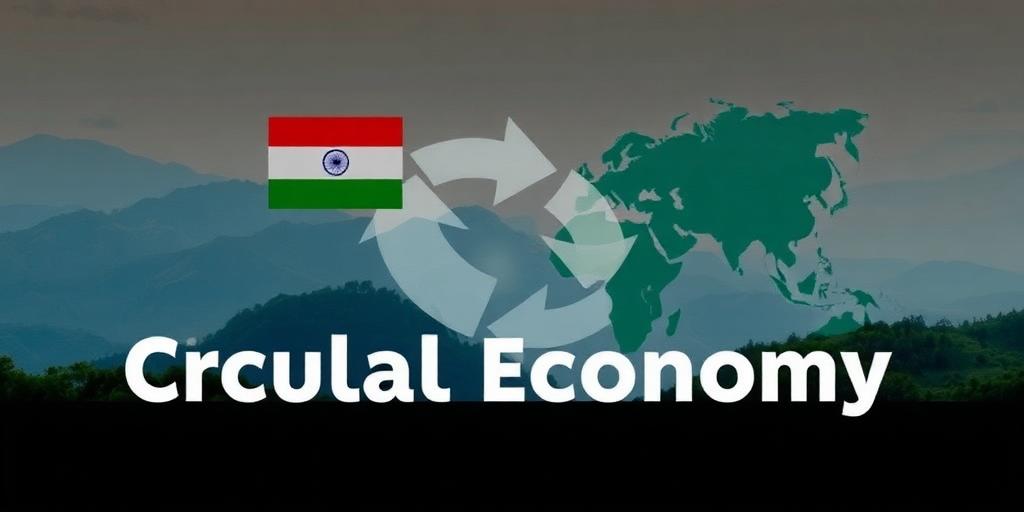The circular economy is gaining momentum globally, presenting significant business opportunities in India and around the world. This model focuses on reducing waste and maximizing resource utilization by keeping products and materials in use for as long as possible. Unlike the traditional linear economy (take-make-dispose), the circular economy emphasizes designing out waste and pollution, keeping products and materials in use, and regenerating natural systems.
Key Principles of the Circular Economy
- Design for Durability and Reusability: Products are designed to last longer and be easily repaired, refurbished, or remanufactured.
- Resource Efficiency: Minimizing the use of raw materials and energy in production processes.
- Waste Reduction: Reducing waste generation through better design, reuse, and recycling.
- Extended Producer Responsibility (EPR): Manufacturers take responsibility for the end-of-life management of their products.
- Closed-Loop Systems: Materials are recycled and reused to create new products, minimizing the need for virgin resources.
Business Opportunities in India
India, with its large population and growing economy, offers immense potential for circular economy initiatives. Several sectors are poised for significant growth:
- Waste Management: With increasing urbanization, effective waste management is crucial. Opportunities include waste segregation, recycling, and waste-to-energy projects.
- E-waste Recycling: India is a major generator of electronic waste. Formalizing the e-waste recycling sector can create jobs and recover valuable materials.
- Sustainable Packaging: Reducing plastic packaging and promoting reusable or biodegradable alternatives is a growing market.
- Remanufacturing: Remanufacturing of automotive parts, electronics, and machinery can extend product life and reduce resource consumption.
- Textile Recycling: Recycling and reusing textile waste can minimize environmental impact and create new business opportunities.
Global Opportunities
The circular economy is not limited to India; it presents opportunities worldwide:
- Sustainable Agriculture: Implementing practices that regenerate soil health, reduce chemical inputs, and minimize food waste.
- Renewable Energy: Transitioning to renewable energy sources and improving energy efficiency.
- Circular Construction: Using recycled materials, designing for disassembly, and minimizing construction waste.
- Fashion Industry: Promoting sustainable fashion practices, such as using recycled materials, designing for durability, and offering repair services.
- Plastics Recycling: Developing innovative technologies for recycling and reusing plastic waste, including chemical recycling.
Challenges and Way Forward
Despite the opportunities, several challenges need to be addressed:
- Lack of Awareness: Many businesses and consumers are not fully aware of the benefits of the circular economy.
- Regulatory Framework: Clear and supportive policies are needed to promote circular economy practices.
- Infrastructure: Adequate infrastructure for waste collection, sorting, and recycling is essential.
- Investment: Significant investment is required to scale up circular economy initiatives.
To realize the full potential of the circular economy, collaboration between governments, businesses, and consumers is crucial. By embracing circular economy principles, businesses can reduce costs, create new revenue streams, and contribute to a more sustainable future. Investing in research and development, promoting awareness, and implementing supportive policies will pave the way for a circular economy that benefits both India and the world.
